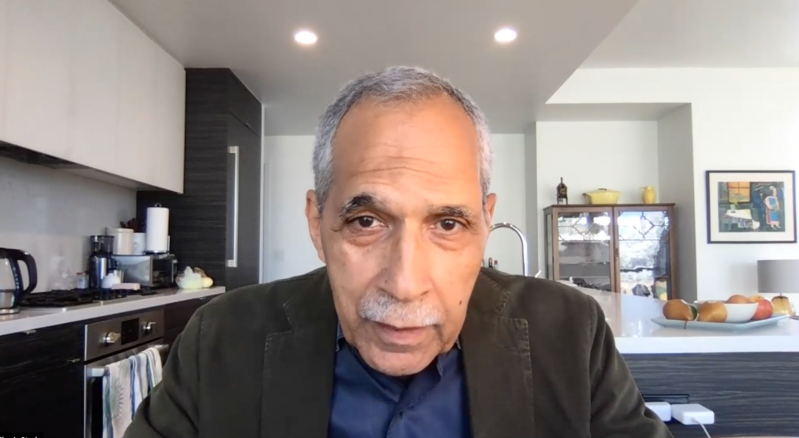Students said campus policing has acted as a form of racial discrimination and advocated for diminishing police presence on campus and investing in mental health services at a Monday town hall for the Community Board on Public Safety.
At the event, 18 different speakers ranging from undergraduate students to postdoctoral researchers expressed their opinions and experiences regarding safety within the Stanford community, while Patrick Dunkley and Claude Steele, co-chairs of the Community Board on Public Safety, listened to students’ assessments of the Stanford Department of Public Safety (DPS). Dunkley said that the purpose of the event was to build trust and transparency between the DPS and campus community by giving students an opportunity to voice their concerns about safety issues.
The town hall comes amid a national movement to abolish the current policing system. On campus, the fight for police abolition has been led by Abolish Stanford, a student group that advocates for the removal of police and demands alternatives for bolstering student safety. So far, the group has brought awareness to issues such as the impact of policing on racial injustice through writing op-eds and hosting open meetings for student involvement.
At the town hall, student speakers expressed support for the cause of police abolition and viable, non-police alternatives that establish and promote safety on campus.
“When we talk about abolition, we are talking about ending policing and all of its forms and building systems of care to fill their place,” said third-year JD/PhD student in neuroscience Ola Aibose. “We are talking about creating transformative relationships that actually keep us safe rather than passing small reforms that do not make any way for a more liberatory future.”
When advocating for police abolition, many students noted that policing on campus has disproportionately impacted people of color, especially Black students.
On the subject of campus drinking, current residential assistant Calvin Tresnan ’22 said, “Black students have consistently reported a greater police presence near Ujamaa, the African American-themed dorm, even though the vast majority of large scale alcohol consumption takes place on the predominantly white frat row.”
Several speakers also said that employees within the DPS seem to have more job security and funding in comparison to other campus workers.
“When Stanford service workers were promised pay this summer and never received it despite their union’s advocacy, the university continued to employ police officers full time and hired many new security staff,” said ixth-year history Ph.D student Justine Modica.
Beyond continued employment of police officers, many complaints about funding addressed the construction of a new Public Safety Building on campus. Speakers expressed discontent regarding the cost of this project and suggested other areas where this money could be allocated.
“This community board and the university should invest in community building on campus, and not be spending millions of dollars on the police and building a new police station in the middle of a pandemic,” Caroline Kim ’21 said.
Some speakers also championed placing a greater emphasis on mental health services when considering the safety and well-being measures in place among the campus community. Olivia Lamberti ’23 criticized an announcement made during fall quarter about ambulances replacing the DPS as a primary method of transportation to the hospital for when students have mental health crises.
“Even in that announcement, the university promised that armed SUDPS deputies would still be involved in mental health response,” Lamberti said. “I condemn any approach to mental health that involves police.”
At the end of the event, Steele said the Community Board was grateful to the speakers for providing their voices on serious issues related to safety and will use these testimonies to inform future decisions.
“We’re alerted to deeper issues of conscience and how our community and its public safety are managed,” Steele said. “We want to reach out and as straightforwardly as we can.”
Steele directed The Daily to this comment when asked to respond to student allegations of the over-policing of Black students and the prioritization of security workers.
“We held these town halls to learn from the community,” Steele added. “We much appreciate the testimonies — many of which were moving — as they will help us develop recommendations for how to improve everyone’s safety on campus.”
